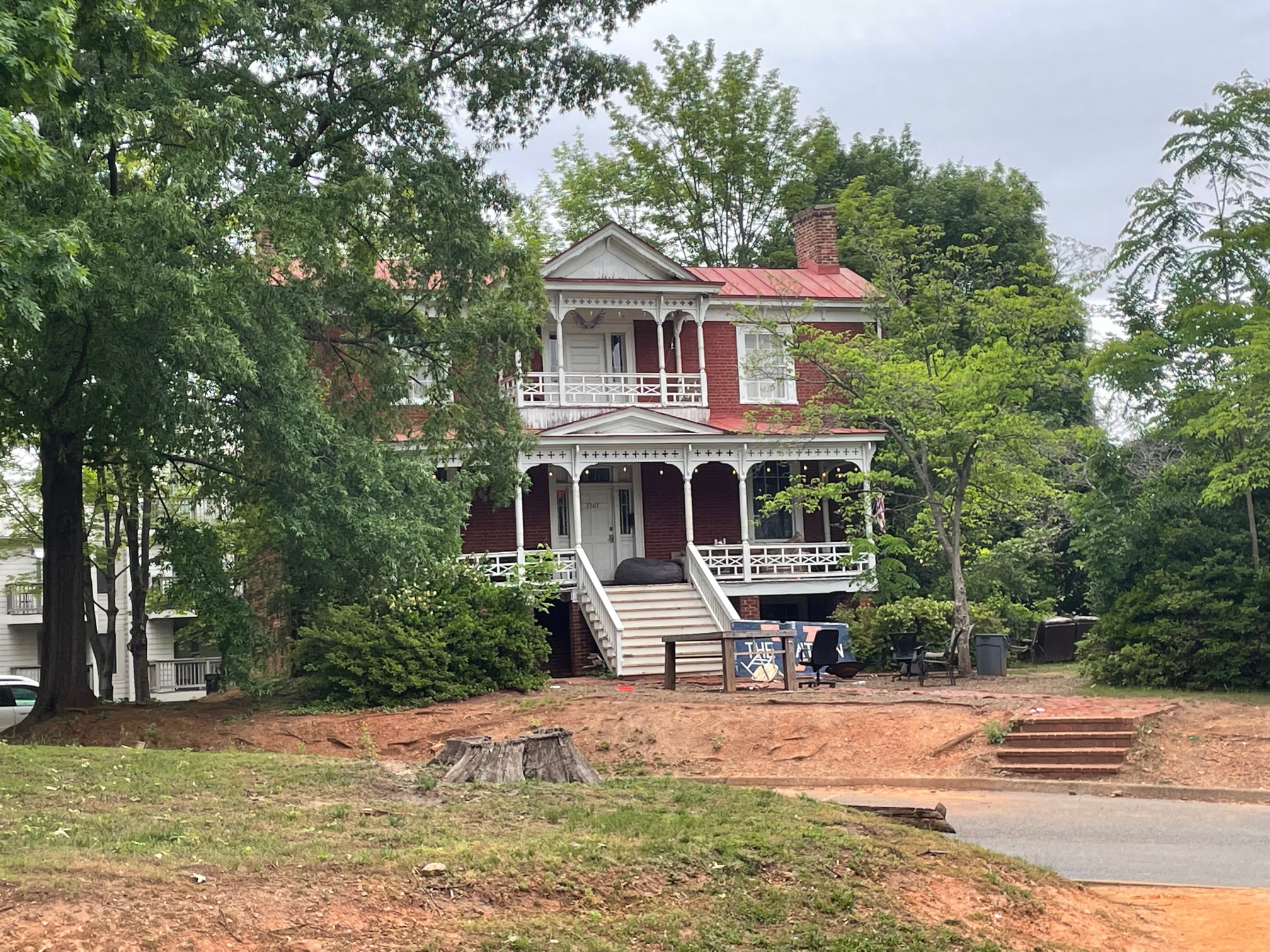Charlottesville has seen many periods of growth since its founding in 1762, and new development rules adopted in late 2023 point the way to a more dense future.
Along the way, city leaders have made decisions about whether some buildings should be preserved, assigning the Board of Architectural Review—the governing body that makes such decisions—a powerful role.
In the mid 2010s, two developers of large buildings on West Main Street were required to incorporate four 19th-century structures into their projects after the BAR refused to approve their demolition.
But just a few years before, the BAR approved a request to demolish an 1980s-era office building that had been Republic Plaza on West Main. That building and a former grocery store were taken down to make way for The Standard at Charlottesville apartment building.
In January, the BAR denied a request from the Delta Zeta sorority to remove 144 Chancellor St., with some members arguing that the structure, a former schoolhouse, was worth preserving. On May 5, City Council overruled that decision in a 3-1 vote, with one member pointing out that the building today shows no signs of its past due to aluminium siding.
“If we’re trying to build up the notion that the district is a historic preservation district, it ought to be something that people can see,” said City Councilor Lloyd Snook.
That decision was the second time in three years that council overturned a BAR ruling on a demolition. The second was removal of a 20th-century structure known as the McLeod House to make way for the 463-unit Verve Charlottesville project at the corner of Jefferson Park Avenue and Emmet Street.
On May 20, the BAR is scheduled to hear a request to demolish 1301 Wertland St., a structure that is the centerpiece of the Wertland Street Architectural Design Control District. The house was built around 1830 and is one of the oldest houses remaining in Charlottesville.
“Wertland Street takes its name from the family of William Wertenbaker, the second librarian appointed by Thomas Jefferson at the University of Virginia,” reads the nomination form that earned the district a spot on the National Register of Historic Places.
Federal and state recognition comes with no protection, but designation in one of the city’s architectural design control districts gives the BAR authority.
A limited liability company tied to Seven Development bought the 0.4-acre Wertland Street property in May 2024 for $1 million. The property is zoned Residential Mixed-Use, which would mean unlimited residential density and a maximum of seven stories if the project meets the affordability levels necessary to achieve bonus height.
The BAR also plays the role of granting certificates of appropriateness for new construction. A group called Preservation of Affordable Housing is overseeing a project at 1000 Wertland St. that will have 180 units guaranteed to be affordable to individuals and households below 80 percent of the area median income. The project has been before the BAR twice and the applicant deferred in late February when the appointed body wanted changes to the design.
Earlier this year, the BAR granted a Certificate of Appropriateness for Heirloom Development to take down the building that houses Violet Crown Cinema. However, both the BAR and the city’s Neighborhood Development Services must first determine what the allowed size and shape of a planned apartment building can be.
One of the oldest houses remaining in Charlottesville, 1301 Wertland St., is the subject of a demolition request that goes before the Board of Architectural Review May 20. Supplied photo.






